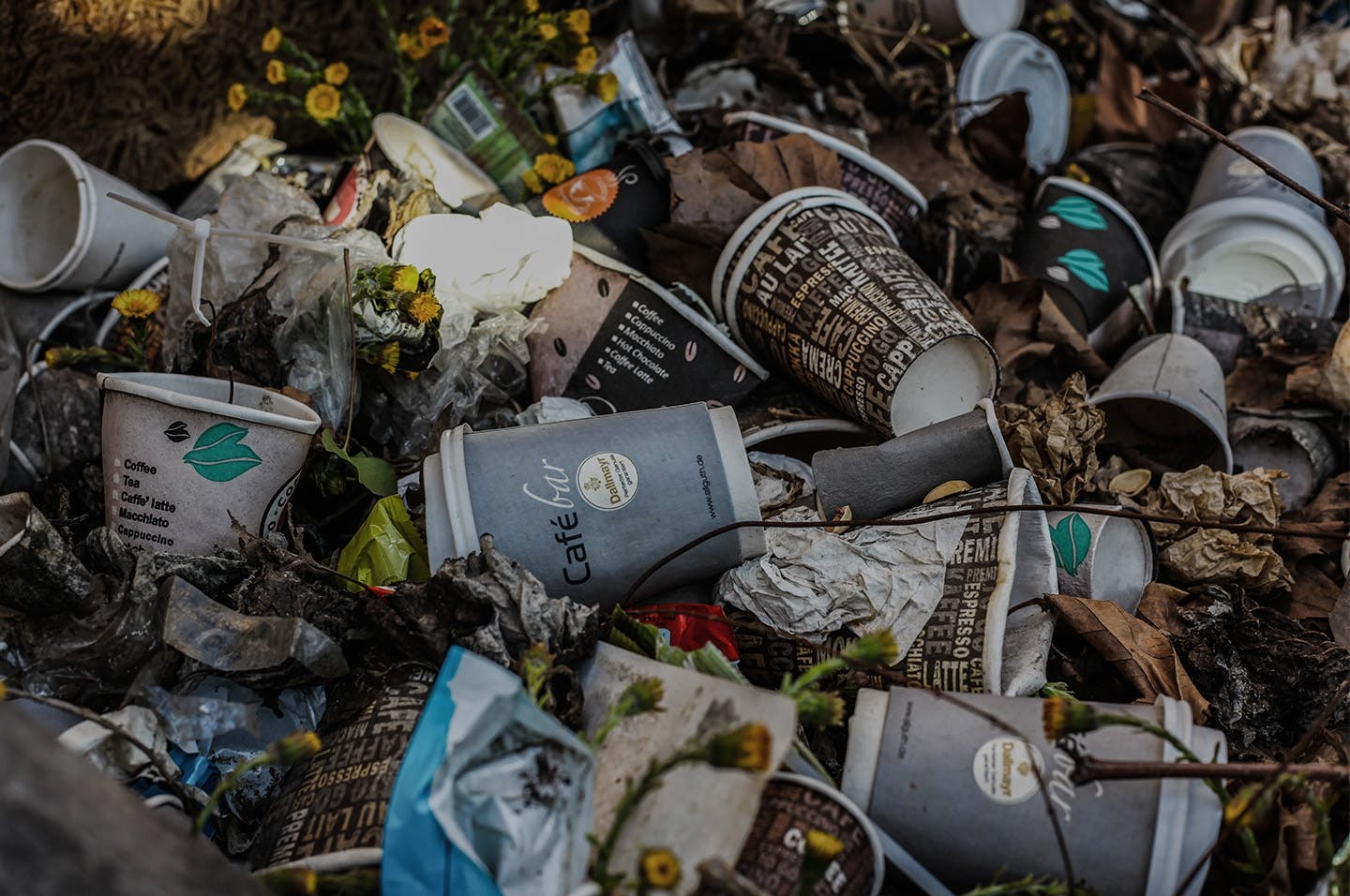
Waste Of Convenience
Over 50b disposable cups are used each year in the U.S., but the vast majority are not recyclable. With cafes looking to cut costs and consumers turning towards sustainable living, is this a waste of convenience?
One of the main words that define our modern way of life is convenience. Convenience comes in many forms, but disposable cups are among the most pervasive examples. According to a 2021 Mordor Intelligence report, the global paper cup industry was worth US$10b in 2020 and is estimated to reach US$13.8b in 2026. While the classic view of paper cups might be coffee, GreenMatch estimates that 16b of them were used globally in 2021 for our favourite pick-me-up, compared to over 50b in total in the United States alone. And demand does not seem to be declining. The disposable cup industry is forecast to grow at a Compounding Annual Growth Rate (CAGR) of 3.6% over the next four years. Unlike most industries, it saw a surge in demand during COVID-19 that seems to be holding strong.
While COVID-19’s restrictions and lockdowns hurt most sectors, disposable cups thrived as cafes and restaurants were forced to pivot towards delivery and takeaway services. In fact, the pandemic even saw a number of single-use plastic bans temporarily lifted. But this is only a brief reversal for plastic, and paper cups and packaging are the clear winners in the disposable industry.
Still, even the clear winners have several long-term concerns, and while they mostly cover the environment, there are a few economic ones.
The first environmental reason is the number of trees used to make these cups. GreenMatch estimates that 6.5m trees are cut down annually to manufacture the 16b disposable cups used for coffee alone.
Another reason is these cups are mostly not recyclable. According to the New South Wales (NSW) Environmental Protection Agency (EPA) of Australia, “disposable coffee cups cannot be recycled through the standard yellow recycling bin”. They require a special, unusual bin, and this causes over 1b to end up in Australian landfills each year.
But if many cafes offer you a discount for bringing your own mug, it’s not just waste reduction they’re aiming for. According to the UNSW Economics Society, each coffee cup and lid cost an average of $0.24, versus $0.27 for the actual coffee. Therefore, while the environmental toll is significant, businesses also have a strong economic incentive to discourage takeaway cups. Where the disposable cup industry will be in ten years is anybody’s guess, but it’s clear that COVID-19 has given it a lifeline for now.